The Amygdala Hijack Effect And The Neurology Of Scam Victims
Principal Category: Neurology
Authors:
• Vianey Gonzalez – Licensed Psychologist Specialty in Crime Victim Trauma Therapy, Neuropsychologist, Certified Deception Professional, Psychology Advisory Panel & Director of the Society of Citizens Against Relationship Scams Inc.
• Tim McGuinness, PhD DFin, MCPO, MAnth – Anthropologist, Scientist, Director of the Society of Citizens Against Relationship Scams Inc.

The amygdala, a small, almond-shaped cluster of nuclei in the brain’s temporal lobes, plays a crucial role in emotional processing, memory formation, and survival instincts. It processes emotions, especially fear, and triggers the fight-or-flight response, preparing the body for immediate action.
The amygdala hijack, coined by Daniel Goleman, describes an overwhelming emotional response to a perceived threat.
Prolonged amygdala hijacking, a state where individuals are subjected to frequent emotional triggers, can significantly impact consumers’ psychological, neurological, and physical health.
Psychologically, constant emotional manipulation increases anxiety, chronic stress, decision fatigue, reduced self-esteem, and emotional desensitization.
Neurologically, chronic stress leads to altered brain function, amygdala hyperactivity, impaired prefrontal cortex function, and neuroplastic changes, affecting emotional regulation and decision-making.
Somatically, prolonged stress can cause physical health issues such as hypertension, cardiovascular diseases, weakened immune response, sleep disturbances, gastrointestinal problems, and muscle tension.
These effects underscore the importance of ethical considerations in marketing practices to protect consumer well-being.
Understanding the Amygdala: Neurology, Function, and Psychological Manipulation
Amygdala: Its Role and Function in the Human Body
The amygdala is a small, almond-shaped cluster of nuclei located deep within the temporal lobes of the brain. Despite its small size, it plays a crucial role in emotional processing, memory formation, and survival instincts.
Structure and Location
The amygdala is part of the limbic system, which is involved in various aspects of emotion and behavior. It consists of two almond-shaped masses of gray matter, one located in each hemisphere of the brain. Positioned near the hippocampus, another critical structure for memory, the amygdala is strategically placed to integrate emotional significance with memory processing.
Functions of the Amygdala
Emotional Processing: The amygdala is most famously associated with the processing of emotions, particularly fear. It helps the brain recognize potential threats and triggers the body’s fight-or-flight response. This rapid response is vital for survival, as it prepares the body to either confront or escape from danger.
Memory Formation: Emotions significantly influence how memories are formed and recalled. The amygdala enhances memory consolidation, particularly of emotionally charged events. This means that highly emotional experiences, whether positive or negative, are often remembered more vividly and for longer periods.
Fear Response: The amygdala detects potential threats and activates the body’s fear response. Upon perceiving a threat, it sends distress signals to the hypothalamus, which then triggers the release of stress hormones like adrenaline and cortisol. This results in physiological changes such as increased heart rate, heightened senses, and a surge of energy, all aimed at preparing the body for immediate action.
Emotional Regulation: Beyond fear, the amygdala also plays a role in processing other emotions, including anger, pleasure, and sadness. It helps in interpreting facial expressions and emotional cues from others, facilitating social interactions and empathy.
Interaction with Other Brain Regions: The amygdala does not work in isolation; it interacts with several other brain regions to perform its functions effectively.
- Hippocampus: This region works closely with the amygdala to link emotions with memories. While the hippocampus is responsible for the formation of new memories, the amygdala attaches emotional significance to these memories.
- Prefrontal Cortex: The prefrontal cortex is involved in higher-order thinking, decision-making, and regulating emotional responses. It helps modulate the amygdala’s activity, allowing for a more measured response to emotional stimuli.
- Hypothalamus: This region controls the autonomic nervous system and the release of hormones. When activated by the amygdala, the hypothalamus initiates the body’s fight-or-flight response.
Physiological Effects: The activation of the amygdala results in several physiological changes aimed at preparing the body for immediate action:
- Increased Heart Rate: To supply more oxygen and nutrients to muscles.
- Dilated Pupils: To allow more light into the eyes, improving vision in low-light conditions.
- Rapid Breathing: To increase oxygen intake.
- Release of Glucose: To provide a quick energy boost.
These changes enable the body to react swiftly to potential threats, either by confronting the danger or escaping it.
Clinical Significance: The amygdala’s critical role in emotional processing and response makes it a focal point in the study of various psychological conditions. Dysregulation or damage to the amygdala is associated with a range of disorders, including:
- Anxiety Disorders: Overactivity in the amygdala is linked to heightened fear and anxiety.
- Post-Traumatic Stress Disorder (PTSD): The amygdala’s strong involvement in fear response and memory formation means it is heavily implicated in PTSD, where individuals have intense, distressing memories of traumatic events.
- Depression: Altered amygdala activity is also observed in individuals with depression, particularly in how they process negative emotions.
Understanding the amygdala’s function is not only crucial for comprehending human emotions and behavior but also for developing treatments for these conditions. Therapeutic approaches, such as cognitive-behavioral therapy (CBT) and certain medications, often aim to modulate the activity of the amygdala and its interactions with other brain regions.
Amygdala: Hijacking Your Emotions
The amygdala hijack is a term coined by psychologist Daniel Goleman to describe an immediate and overwhelming emotional response to a stimulus, which is disproportionate to the actual threat.
This response is triggered by the amygdala, in response to perceived threats and other emotional states. Understanding the neurology of the amygdala hijack, its function in the brain and body, and its potential for psychological manipulation provides insight into both human behavior and the darker side of social influence.
Neurology of the Amygdala Hijack
The amygdala is part of the limbic system, which is involved in emotional processing and regulation. It is responsible for detecting threats and triggering the body’s fight-or-flight response. When the amygdala perceives a threat, it sends distress signals to the hypothalamus, initiating a cascade of physiological responses.
The Process of an Amygdala Hijack:
- Perception of a Threat: Sensory information (sight, sound, etc.) is first processed by the thalamus, which acts as a relay station.
- Signal to Amygdala: If the thalamus perceives the information as a threat, it sends a signal directly to the amygdala.
- Activation of the Hypothalamus: The amygdala then signals the hypothalamus, which activates the sympathetic nervous system.
- Release of Stress Hormones: The adrenal glands release adrenaline and cortisol, preparing the body for fight-or-flight.
- Physiological Changes: Heart rate increases, pupils dilate, and energy is redirected to essential muscles, enhancing physical readiness while reducing cognitive function.
Neurological Pathways: The amygdala hijack bypasses the neocortex, the brain’s rational thinking center. This shortcut allows for a rapid response but often leads to irrational behavior because the brain’s reasoning part is circumvented. This can lead to an intense emotional reaction before the rational mind has time to assess the situation.
Function in the Brain and Body
The primary function of the amygdala hijack is survival. In our evolutionary past, quick responses to threats were essential for survival. However, in modern society, this response can be triggered by non-life-threatening situations, such as stress at work or personal conflicts, leading to inappropriate or exaggerated reactions.
Physiological Responses:
- Increased Heart Rate and Blood Pressure: Preparing the body to either fight or flee.
- Heightened Senses: Pupils dilate to take in more light, and hearing becomes more acute.
- Suppressed Digestive System: Blood flow is redirected from the stomach to muscles.
- Energy Surge: Glucose is released into the bloodstream, providing a burst of energy.
Psychological Manipulation Techniques
Understanding the mechanics of the amygdala hijack opens doors to its manipulation. By inducing strong emotions such as fear or love/affection, individuals can be manipulated into certain behaviors or decisions.
Inducing Fear: Fear is a powerful motivator and can be used to manipulate behavior. Political campaigns, advertising, and even personal relationships can exploit fear to influence actions.
- Creating Perceived Threats: By exaggerating or fabricating threats, manipulators can trigger the amygdala hijack, causing individuals to act irrationally.
- Using Fear in Marketing: Advertisements often use fear to prompt quick purchases by highlighting negative consequences of not using a product.
- Political Propaganda: Fearmongering in politics can sway public opinion by presenting exaggerated threats from opposing parties or ideologies.
Inducing Love/Affection: Positive emotions can also be used manipulatively. Love and affection can create strong bonds and influence behavior, often leading to compliance and trust.
- Building Emotional Connections: Manipulators may use flattery, charm, and shared experiences to build strong emotional connections.
- Creating Dependency: By fostering feelings of love and affection, manipulators can create emotional dependency, making it difficult for individuals to act independently.
- Manipulative Relationships: In personal relationships, one partner might use affection and love to control the other, ensuring compliance and suppressing dissent.
Effects of Prolonged Amygdala Hijacking on Victims of Manipulation
When “amygdala hijacking” is prolonged over months and years, it can lead to significant psychological, neurological, and somatic (physical) effects on individuals, especially those who are victims of manipulation.
Psychological Effects
Chronic Anxiety and Stress: Prolonged amygdala hijacking results in a constant state of fear and anxiety. The individual is frequently on high alert, anticipating potential threats, which can lead to generalized anxiety disorder (GAD). This chronic anxiety can interfere with daily activities and reduce overall quality of life.
Depression: The sustained activation of the amygdala and the resultant stress can deplete neurotransmitters such as serotonin and dopamine, which are crucial for mood regulation. This depletion can lead to depression, characterized by persistent sadness, loss of interest in activities, and feelings of hopelessness.
Post-Traumatic Stress Disorder (PTSD): Victims of prolonged manipulation may develop PTSD, especially if the manipulation involves significant trauma. Symptoms of PTSD include intrusive memories, flashbacks, nightmares, and severe emotional distress when reminded of the trauma.
Emotional Dysregulation: Prolonged amygdala hijacking can impair the ability to regulate emotions. Victims may experience mood swings, heightened irritability, and difficulty controlling their emotional responses. This dysregulation can strain personal relationships and affect social interactions.
Neurological Effects
Structural Changes in the Brain: Chronic stress from prolonged amygdala activation can lead to structural changes in the brain. The hippocampus, which is involved in memory and learning, may shrink due to prolonged exposure to stress hormones like cortisol. Conversely, the amygdala itself may enlarge, enhancing its sensitivity to stress and fear stimuli.
Impaired Cognitive Function: The prefrontal cortex, responsible for executive functions such as decision-making, problem-solving, and rational thinking, can be compromised by prolonged amygdala hijacking. This impairment can lead to difficulties in concentration, memory retention, and cognitive processing.
Neurochemical Imbalance: The chronic activation of the amygdala disrupts the balance of neurotransmitters, including serotonin, norepinephrine, and dopamine. This imbalance can exacerbate mental health conditions such as anxiety and depression and affect overall brain function.
Somatic (Physical) Effects
Chronic Pain and Fatigue: The body’s prolonged stress response can lead to chronic pain and fatigue. Conditions such as fibromyalgia and chronic fatigue syndrome (CFS) are often associated with long-term stress and anxiety. Muscle tension, headaches, and joint pain are common physical manifestations of chronic stress.
Cardiovascular Issues: Long-term amygdala hijacking can contribute to cardiovascular problems. The constant release of stress hormones can increase blood pressure, heart rate, and the risk of heart disease and stroke. Stress-related cardiovascular conditions can severely impact physical health and longevity.
Immune System Suppression: Chronic stress weakens the immune system, making individuals more susceptible to infections and illnesses. The body’s prolonged inflammatory response can lead to autoimmune disorders and exacerbate existing health conditions.
Gastrointestinal Problems: The gut-brain axis, a bidirectional communication system between the gastrointestinal tract and the brain (via the Vagus Nerve,) can be significantly affected by chronic stress. Conditions such as irritable bowel syndrome (IBS), acid reflux, and ulcers can arise or worsen under prolonged stress.
Mitigating the Effects of Amygdala Hijack
Coping and Recovery
The prolonged hijacking of the amygdala by manipulative tactics can have devastating psychological, neurological, and somatic effects on victims. Understanding these impacts underscores the importance of recognizing and addressing manipulation early. Comprehensive therapeutic interventions are essential to mitigate these effects and support recovery, enabling victims to reclaim their mental, emotional, and physical health.
Recovery from prolonged amygdala hijacking requires a multifaceted approach. Psychological therapies such as cognitive-behavioral therapy (CBT) and trauma-focused therapy can help individuals process, heal, and manage their psychological trauma. Mindfulness practices and stress management techniques can aid in regulating emotional and physiological responses.
Neurologically, activities that promote neuroplasticity, such as engaging in new learning experiences, physical exercise, and meditation, can help restore balance and improve cognitive function. Somatic therapies, including yoga and massage, can alleviate physical symptoms and promote overall well-being.
Summary
The amygdala is a vital component of the brain’s emotional and survival mechanisms. By processing emotions, enhancing memory formation, and triggering physiological responses to threats, it plays a key role in how we experience and react to the world around us. Its interactions with other brain regions and its influence on behavior underscore its importance in both everyday functioning and in various psychological conditions. Understanding the amygdala’s functions and mechanisms is essential for advancing psychological and neurological research and for improving therapeutic interventions for emotional and mental health disorders.
The amygdala hijack is a powerful neurological response designed for survival. While it has its roots in our evolutionary past, in today’s world, it can be manipulated to influence behavior through fear or love. Understanding the mechanisms behind this response and using this knowledge ethically is crucial in both personal and social contexts. By fostering awareness and developing self-regulation techniques, individuals can mitigate the impact of the amygdala hijack and make more rational decisions in the face of strong emotions.
Remember, awareness and self-regulation are key to mitigating the effects of an amygdala hijack.
- Mindfulness and Meditation: These practices can help increase awareness of emotional responses and improve control over their reactions.
- Cognitive Behavioral Techniques: Identifying and challenging irrational thoughts can reduce the impact of emotional triggers.
- Stress Management: Techniques such as deep breathing, exercise, and adequate sleep can lower overall stress levels, making the amygdala less likely to trigger.
Final Thought: Ethical Considerations
The use of amygdala hijack for manipulation raises significant ethical concerns, yet it is done almost everywhere.
While understanding these mechanisms can be beneficial for self-awareness and personal development, using them to control or influence others can be harmful and unethical. It is crucial to recognize the power of emotional responses and use this knowledge responsibly.
IMPORTANT NOTE: This article is intended to be an introductory overview of complex psychological, neurological, physiological, or other concepts, written primarily to help victims of crime understand the wide-ranging actual or potential effects of psychological trauma they may be experiencing. The goal is to provide clarity and validation for the confusing and often overwhelming symptoms that can follow a traumatic event. It is critical to understand that this content is for informational purposes only and does not constitute or is not a substitute for professional medical advice, diagnosis, or treatment. If you are experiencing distress or believe you are suffering from trauma or its effects, it is essential to consult with a qualified mental health professional for personalized care and support.

Welcome to the SCARS INSTITUTE Journal of Scam Psychology
A Journal of Applied Scam, Fraud, and Cybercrime Psychology – and Allied Sciences
A dedicated site for psychology, victimology, criminology, applied sociology and anthropology, and allied sciences, published by the SCARS INSTITUTE™ – Society of Citizens Against Relationship Scams Inc.
TABLE OF CONTENTS
A Question of Trust
At the SCARS Institute, we invite you to do your own research on the topics we speak about and publish, Our team investigates the subject being discussed, especially when it comes to understanding the scam victims-survivors experience. You can do Google searches but in many cases, you will have to wade through scientific papers and studies. However, remember that biases and perspectives matter and influence the outcome. Regardless, we encourage you to explore these topics as thoroughly as you can for your own awareness.
Please Leave A Comment
Recent Comments
On Other Articles
[better_recent_comments number=”5″ format=”{avatar} on {post}: “{comment}” {date}” avatar_size=”20″]
A Note About Labeling!
We often use the term ‘scam victim’ in our articles, but this is a convenience to help those searching for information in search engines like Google. It is just a convenience and has no deeper meaning. If you have come through such an experience, YOU are a Survivor! It was not your fault. You are not alone! Axios!
Statement About Victim Blaming
Some of our articles discuss various aspects of victims. This is both about better understanding victims (the science of victimology) and their behaviors and psychology. This helps us to educate victims/survivors about why these crimes happened and to not blame themselves, better develop recovery programs, and to help victims avoid scams in the future. At times this may sound like blaming the victim, but it does not blame scam victims, we are simply explaining the hows and whys of the experience victims have.
These articles, about the Psychology of Scams or Victim Psychology – meaning that all humans have psychological or cognitive characteristics in common that can either be exploited or work against us – help us all to understand the unique challenges victims face before, during, and after scams, fraud, or cybercrimes. These sometimes talk about some of the vulnerabilities the scammers exploit. Victims rarely have control of them or are even aware of them, until something like a scam happens and then they can learn how their mind works and how to overcome these mechanisms.
Articles like these help victims and others understand these processes and how to help prevent them from being exploited again or to help them recover more easily by understanding their post-scam behaviors. Learn more about the Psychology of Scams at www.ScamPsychology.org
Psychology Disclaimer:
All articles about psychology, neurology, and the human brain on this website are for information & education only
The information provided in these articles is intended for educational and self-help purposes only and should not be construed as a substitute for professional therapy or counseling.
While any self-help techniques outlined herein may be beneficial for scam victims seeking to recover from their experience and move towards recovery, it is important to consult with a qualified mental health professional before initiating any course of action. Each individual’s experience and needs are unique, and what works for one person may not be suitable for another.
Additionally, any approach may not be appropriate for individuals with certain pre-existing mental health conditions or trauma histories. It is advisable to seek guidance from a licensed therapist or counselor who can provide personalized support, guidance, and treatment tailored to your specific needs.
If you are experiencing significant distress or emotional difficulties related to a scam or other traumatic event, please consult your doctor or mental health provider for appropriate care and support.
Also, please read our SCARS Institute Statement About Professional Care for Scam Victims – here
If you are in crisis, feeling desperate, or in despair please call 988 or your local crisis hotline.
SCARS Institute Resources:
- If you are a victim of scams, go to www.ScamVictimsSupport.org for real knowledge and help
- Enroll in SCARS Scam Survivor’s School now at www.SCARSeducation.org
- To report criminals, visit reporting.AgainstScams.org – we will NEVER give your data to money recovery companies like some do!
- Sign up for our free support & recovery help at www.SCARScommunity.org
- Follow us and find our podcasts, webinars, and helpful videos on YouTube: www.youtube.com/@RomancescamsNowcom
- SCARS Institute Songs for Victim-Survivors: www.youtube.com/playlist…
- Learn about the Psychology of Scams at www.ScamPsychology.org
- Dig deeper into the reality of scams, fraud, and cybercrime at www.ScamsNOW.com and www.RomanceScamsNOW.com
- Scam Survivor’s Stories: www.ScamSurvivorStories.org
- For Scam Victim Advocates, visit www.ScamVictimsAdvocates.org
- See more scammer photos on www.ScammerPhotos.com


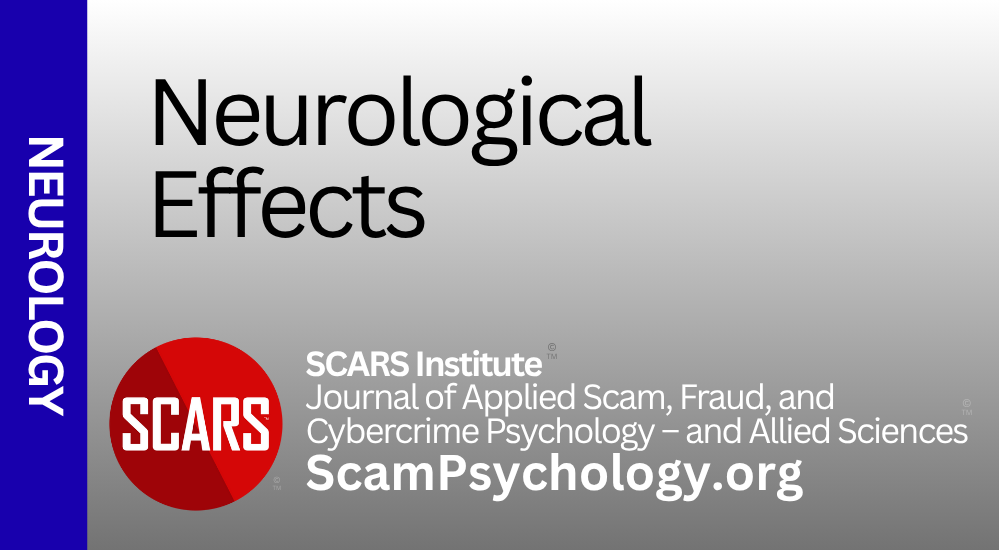
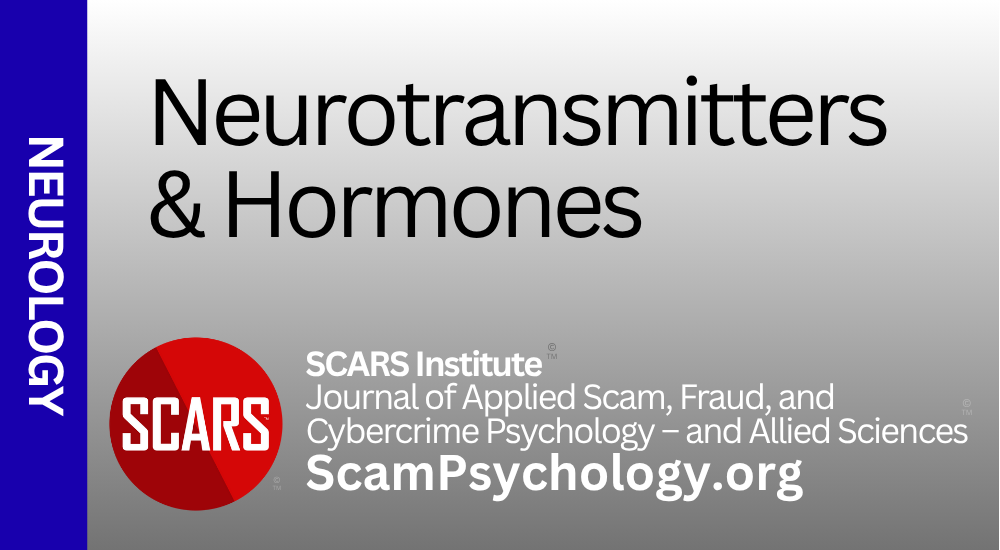

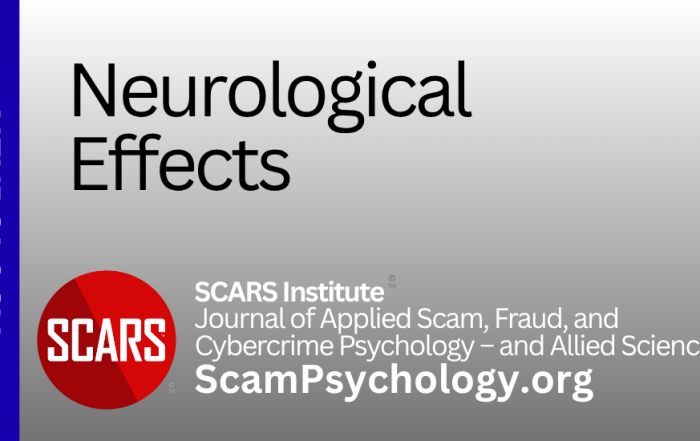

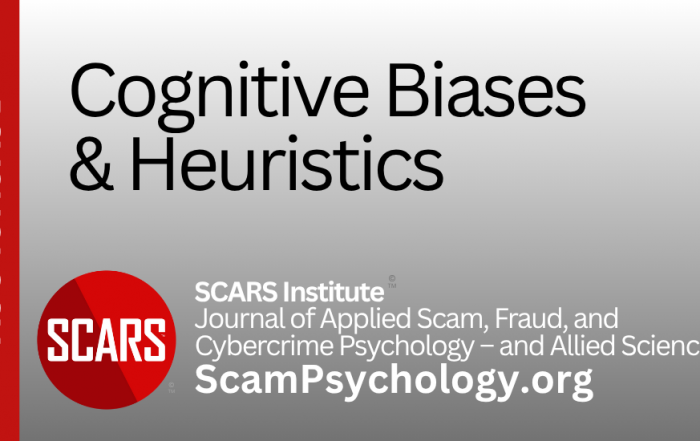
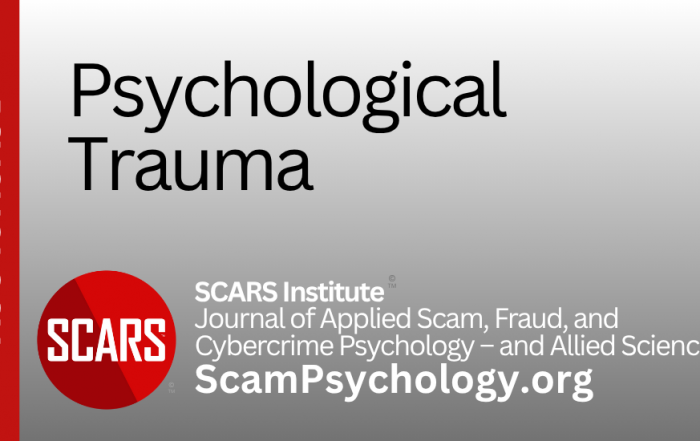



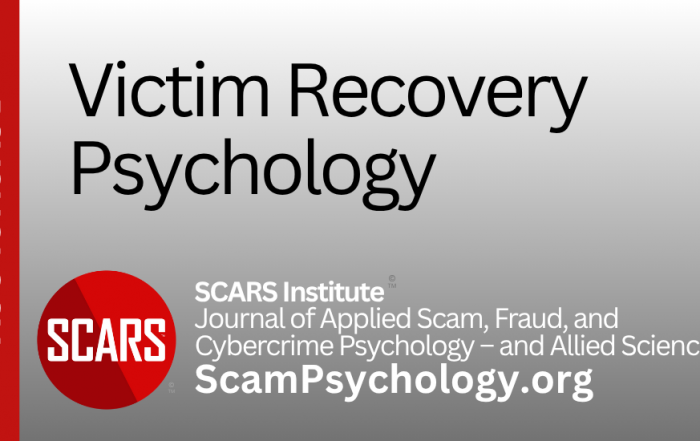

![niprc1.png1_-150×1501-11[1]](https://scampsychology.org/wp-content/uploads/2025/05/niprc1.png1_-150x1501-111.webp)
Excellent summary of how an Amygdala hijack works, thank you.
It’s fascinating how we have been able to identify how different parts of the brain effects us both mentally & physically.
That is because tens of thousands of scientists did the work needed to develop that understanding over the last 150 years. This is an amazing achievement. Also it is because of the millions of patients that were involved in this work.
This article helped me to understand that in a sense amygdala hijacking wasn’t “created” in me so to speak during my crime. It is something that is always there, something from our evolution to enable us to survive past the dinosaurs. What actually happened was the criminal “tapped” into this part of my brain and hyperactivated it. That is why I’ve been so tired, why I have dreams and nightmare involving the “relationship” between me and the criminal. It explains my gastric distress. It explains why sometimes during the day at home or at work my heart begins to race and I’m afraid for no apparent reason. Thank you for this explanation that allows me to see what happened to me.
I am so fascinated by the amygdala and how it functions in our minds and bodies. I am grateful to know what happened to me internally in the brain as well as how we continue to heal through many coping skills offered to us to practice. This was excellently written for anyone to understand. Thank you!
Thank you for explaining how the amygdala interacts with other areas of the brain and how it affects us psychologically, neurologically and somatically. This is all so fascinating.
I did research and found where the amygdala is located in the brain; however, I am interested in science. Thank you for complete explanation of amygdala hijacking.